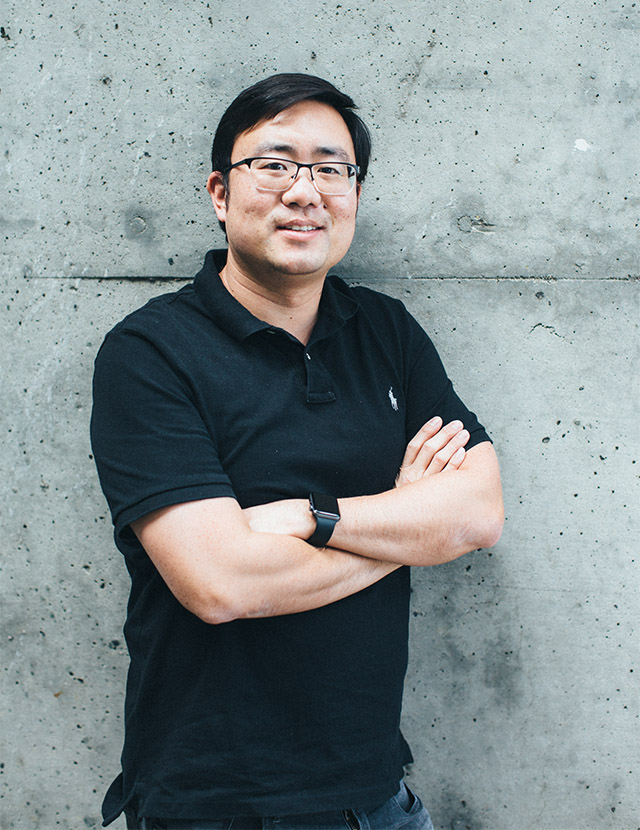|
Getting your Trinity Audio player ready...
|
“Get more patents.” Paul Liu has repeatedly heard this mandate throughout his career.
There was a time when Liu would have simply complied, perhaps when he was a recent graduate managing intellectual property for an engineering firm, but that was more than fifteen years ago.
Now when Liu is told to get more patents, he has a different response. He asks why. Liu is no longer content to collect patents and build big IP portfolios in a vacuum; he wants to make sure his work has a deeper impact and an effective return on investment for his company.
Liu is TuSimple’s deputy general counsel and global head of intellectual property. He has been with the company since 2019. He’s built various legal functions, such as with intellectual property, compliance, and commercial contracts. TuSimple has a reputation for achieving many firsts in the self-driving industry—it is the world’s first autonomous trucking company to become publicly traded and the first company to hold fully autonomous “driver-out” semi-truck runs on public roads.
“Managing legal and intellectual property functions should be about more than just checking a box within a company.”
Paul Liu
To pull off these seemingly futuristic feats, TuSimple’s design, engineering, development, and product teams had to use complex innovations, technologies, and methodologies to ensure that TuSimple’s driverless trucks could interact with pedestrians and motorists while safely changing lanes, merging, and driving in daily traffic. However, autonomous trucking still has a way to go before it reaches maturity.
“Managing legal and intellectual property functions should be about more than just checking a box within a company,” he explains of his developing IP for a relatively new industry. “An effective leader finds innovative ways to partner with the C-Suite to form guiding policies, evaluate opportunities, and move the company forward.”
That advice is exactly what Liu has done with his holistic approach at TuSimple. In times both good and bad, he focuses on the people, teams, and tasks that he can control. “I can’t really impact global trade relations or international conflicts, but I can influence our IP, our policies, our training, our investor relations, and our procedures,” he says. Liu is careful to monitor emerging trends and technologies so he can help TuSimple hedge against new developments in issues ranging from artificial intelligence to export compliance. By focusing on those things—the things he can control—Liu is able to both anticipate and prepare.
Liu is focused on broadening himself into a leader and creating an effective team. He hires candidates who are a cultural fit and have important technical skills, and he tends to select candidates who have training at major law firms or experience with reputable in-house teams.
Public speaking is also one of Liu’s strong suits and he’s written for leading industry publications such as Intellectual Asset Management. The magazine recognized him as one of “The World’s Leading IP Strategists” since 2022.
Although Liu was brought to the company to take on an IP centric role, he was quick to take on additional roles that emphasized how legal functions are holistic and interconnected. “No company can handle legal and intellectual property risks and opportunities in a vacuum, and a successful leader will accelerate his or her program by hiring smart legal minds and finding people that are comfortable engaging various departments and leaders to develop goals aligned with the business,” he says.
Collaboration is a key part of Liu’s management strategy. One of the first things he did at TuSimple was create a supportive and synergistic environment by removing obstacles to creativity. If engineers don’t like to write, Liu will come to them armed with a pad and paper to meet the engineers at their convenience to obtain invention disclosures.
“Working in the nascent autonomous trucking industry is like trying to hit a moving bullseye in a dark room.”
Paul Liu
At TuSimple, IP is more than just another legal function. It also touches HR, marketing, business development, and other departments. “If you hire diverse engineers but you lack diverse inventors, then you might have a wasted opportunity, as you may be harnessing ideas only from the loudest voices,” he says, adding that he tracks metrics for the full usage of company resources. He also helps his peers in marketing tell the complex TuSimple story using measurable metrics such as the count and quality of patents, and he advises his business development colleagues on the pros and cons of potential collaborations based on an evaluation of legal risk.
The future of driverless trucking is dynamic, which makes Liu’s job challenging. “Working in the nascent autonomous trucking industry is like trying to hit a moving bullseye in a dark room,” he says. Liu’s efforts to introduce flexible strategies give his company optionality to pivot to new business paths in a changing market environment. And the opportunity is huge: TuSimple estimates the total addressable market is around $800 billion in the US and $4 trillion worldwide. Liu has TuSimple in a great position to keep on trucking.



